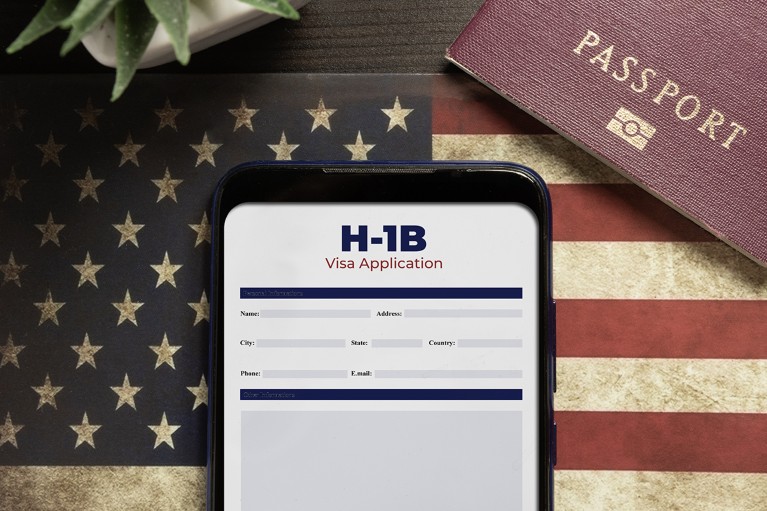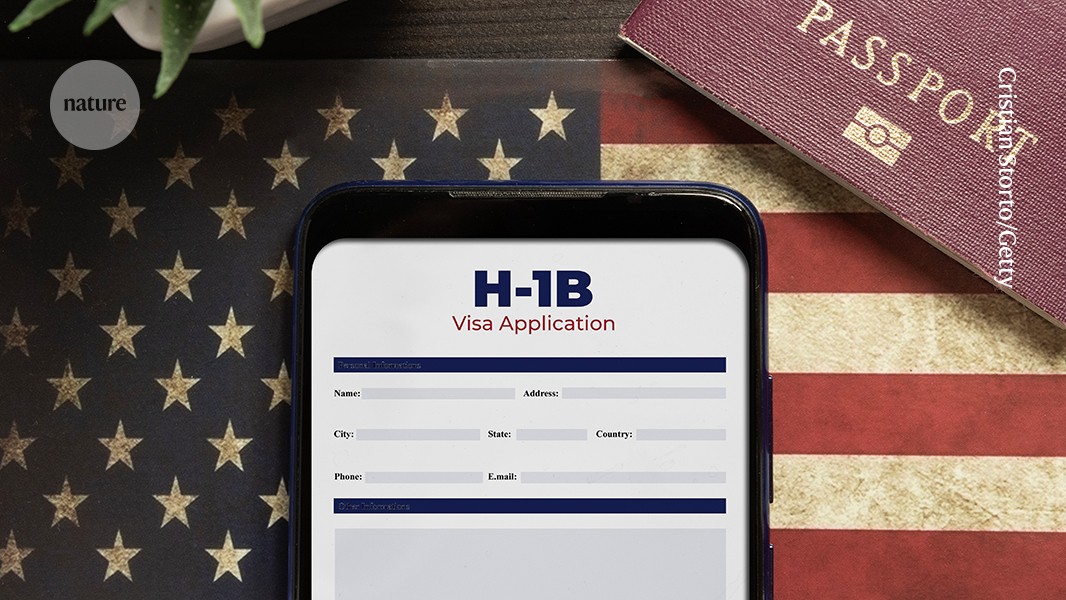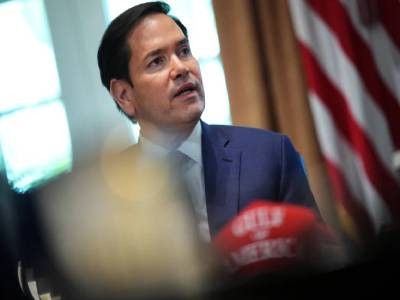
US President Donald Trump announced on 19 September that he would raise the fee for H-1B visas for skilled foreign workers to US$100,000. Credit: Cristian Storto/Getty
US universities and researchers are scrambling to understand how they will be affected by President Donald Trump’s announcement late last week that he would massively hike the fee on visas for foreign skilled workers. Some fear the move could wreck universities’ chances of attracting talent from abroad, leaving research projects adrift and science courses without instructors.
The plan, released on 19 September, is to charge US$100,000 per application for an H-1B visa, which is used by many foreign-born postdoctoral fellows and some professors taking up employment at US research institutions, as well as scientists and engineers doing the same at US companies. The new fees apply to applications submitted after 21 September. The move could raise the cost of the visas, normally a few thousand dollars, by up to 26 times current levels.
‘You’re just not welcome’: researchers grapple with US plan to revoke Chinese student visas
H-1B visas, which are usually valid for up to six years, are meant to allow skilled foreign workers to enter the United States to temporarily take jobs that cannot be filled by domestic workers. They are separate from other visas open to foreign-born researchers and academics such as J-1 visas for individuals participating in visitor-exchange programmes. And they are separate from F-1 visas that foreign-born graduate students typically use to study at US institutions.
It is so far unclear whether universities will be exempt from the new fee, which is aimed at preserving more jobs for US citizens. In the announcement, Trump said that “abuse” of H-1B visas has facilitated an “influx” of foreign labour in science, technology, engineering and mathematics (STEM) that has undermined salaries and workplace conditions for US workers, and that the visas are a “national security threat” because they discourage US citizens “from pursuing careers in science and technology, risking American leadership in these fields”. But it also says that exemptions could be made for those working “in the national interest”.
Universities say foreign workers are crucial to them being able to fill certain roles in STEM.
Andrea Liu, a physicist at the University of Pennsylvania in Philadelphia, told Nature that the fee hike will shut down the possibility of recruiting scientists from abroad and damage the future of her research group.
“It is an utter disaster — yet another body blow to US science,” she says.
The White House did not respond to Nature’s queries about whether universities will be exempt from the fee hike, or about scientists’ concerns about the new policy.
Seeking clarity
It’s unclear how many researchers at US institutions are employed on H-1B visas. Data from the US National Center for Science and Engineering Statistics in Alexandria, Virginia, found that of the 62,750 postdoctoral researchers in the United States in 2022, more than 56% held a temporary visa of some kind. The US Department of Homeland Security typically awards a maximum of 85,000 H-1B visas each year to companies and other US employers; universities and non-profit research organizations are exempt from this cap.
Sarah Spreitzer, who represents the American Council on Education (ACE) on research policy and immigration issues, says that H-1B visa fees are typically paid by the employing institution. ACE — an association of higher education organizations based in Washington DC — is seeking clarification from the Trump administration on whether it will exempt universities and research institutions from the new fees. Spreitzer says these institutions would probably be unable to afford the dramatically higher costs and will struggle to recruit instructors and researchers in fields such as engineering, science and nursing, which tend not to attract sufficient domestic interest.
As a result “some [university] courses might not be offered and some research might not go ahead”, she adds.
A ‘profound’ effect
The H-1B announcement follows other anti-immigration plans put forwards by the Trump team. For instance, in May US secretary of state Marco Rubio said that the United States would be revoking visas both for Chinese students in “critical fields” and with connections to the Chinese Communist Party.



